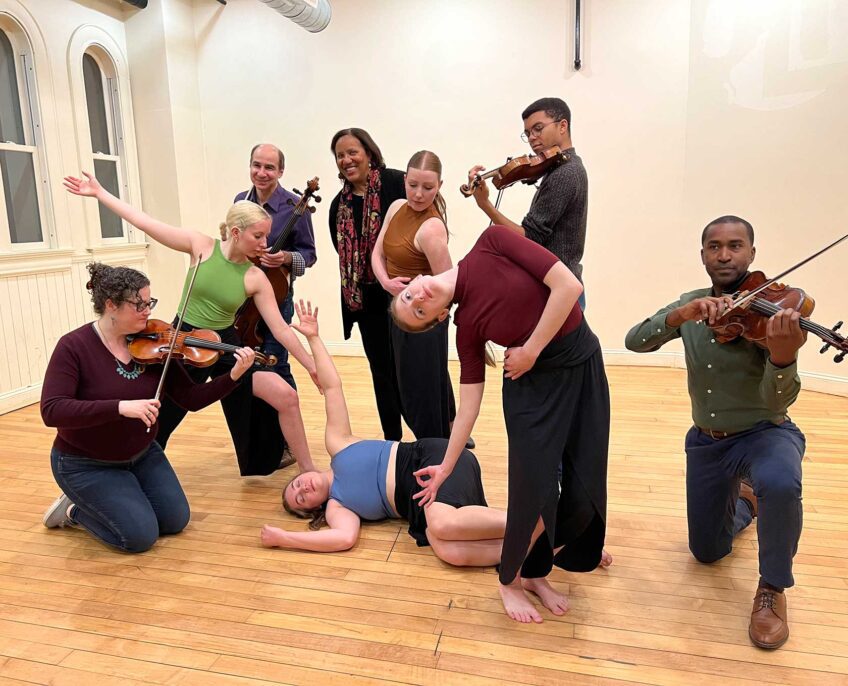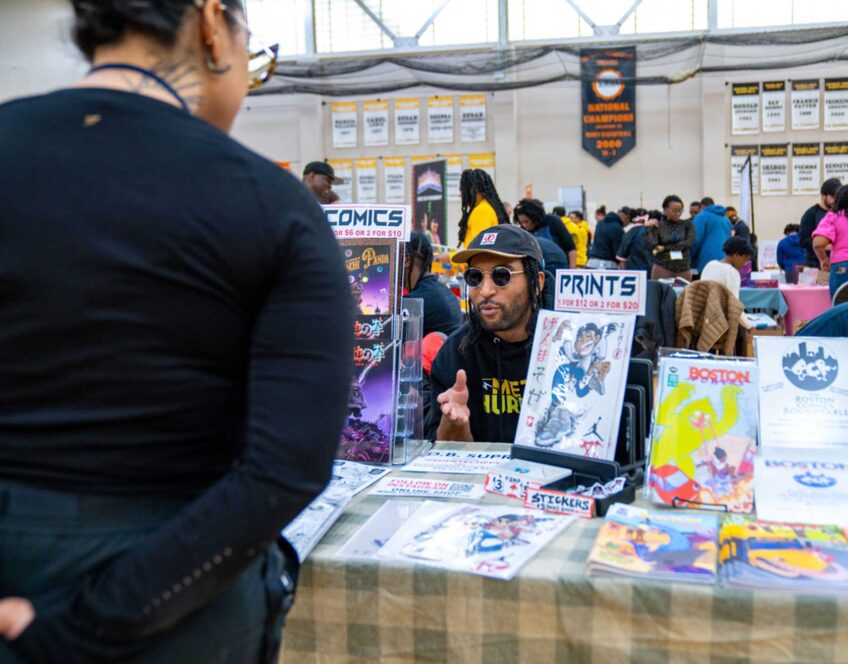

Pariah: The little film that could
One of the best movies of the year is an indie film called “Pariah” from Focus Features. The contemporary drama is directed and written by Dee Rees and first premiered as a short in 2007. Since then, Rees developed the short into a feature-length film with the help of Executive Producer Spike Lee. Earlier this year it was chosen as an official selection for the 2011 Sundance Film Festival.
“Pariah” is a coming-of-age story about Alike (pronounced ah-lee-kay), an African American teenage girl living and growing up in Brooklyn with her parents Audrey and Arthur (Kim Wayans and Charles Parnell), and younger sister Sharonda (Sahra Mellesse).
Adepero Oduye — the breakout star of this film — does an incredible job of conveying the depth and emotion of Alike’s struggles as she embraces her sexuality and learns to define herself as a lesbian, and how she fits into the world around her. Recently, Oduye was nominated for an Independent Spirit Award for her role as Alike.
I had the chance to chat in depth about the film with both Rees and Oduye when they were in town for a recent screening of the film at the Institute of Contemporary Art.
What do you tell young girls and boys who are struggling with the same topic as Alike was in the film? What advice would you give to them?
DR: Because of the struggle, it’s not so much a “coming out,” but “coming into.” I would hope that the biggest thing they take away is the fact they don’t have to be in a box. They don’t have to be anybody other than themselves even within the LGBT community. There is a range of identities.
AO: Being yourself. And the most important thing is to love and accept yourself. And when that happens, miracles can happen. You can live the best life in spite of who is not accepting you or who is not ready to accept you for who you are, but if you can do that, that’s a lot.
You’ve lived with the film for some time. Are you still living with it or have you been able to let it go as you prepare for the next project?
DR: I feel released, you know. I think that she’s OK now. So, I feel released from it. I think I’ve moved on. I’ve started other projects. We’re all really happy the way the film came out and we told the story we wanted to tell. That way you feel really fulfilled and audiences now are having the chance to respond to it.
Did the character Alike teach you anything that you’re applying to your life?
AO: The whole thing about loving yourself. I definitely feel like I’m at a point in my life that I can honestly say that I do love myself, and I know what that means for me. And also, in terms of the movie, being a part of this whole thing and the journey of “Pariah,” I really know that anything is possible. That’s kind of something that I didn’t know before that I do know now, that anything is possible.
Your parents are from Nigeria. How did they feel with you one, being an actress and two, with a role like this, were they concerned about you playing a character like this?
AO: When I decided to become an actress it was an issue. My mother was very much confused. I was going to be a doctor since the age of 4. My mother is not from here and she didn’t understand what the whole thing about acting was. Pursuing a career, she didn’t get it.
In terms of the subject matter, homosexuality is a touchy issue in many races, all across the board. My mother watched it and I didn’t tell her what the film was about. I was thinking, ‘oh god, maybe I should have prepped her.’ But she was OK with it.
And definitely now, she’s more than OK with it. It’s funny, she’s never talked about those kind of issues before. I remember she called me from Nigeria, I think maybe before Sundance or after Sundance, and I remember it was at the time that people were getting killed in Uganda. They were seeking out gay people in Uganda and they were killing them and she said to me “that a film like ‘Pariah’ needs to come to Africa because they’re killing people because they’re gay and I don’t understand why.”
And for me that was profound, that my involvement in a film like this can bring a level of awareness about this particular issue to my mother, who’s a 60-plus Nigerian woman.
How has the reception been for this film?
DR: The reception has been really positive. I have peers who have come out and their mothers have no issues with them. In my case, that wasn’t the situation. We’ve screened it for some great audiences and the reaction still is similar to Adepero’s mother. People, wherever they are, kind of respond to it and figure out what they can do in their lives to be a better person.
With my own parents, with my own mother, when I first did the short, she wasn’t that positive about it. She was kind of like “you’re doing the devil’s work and that’s why it’s so successful.” And then to yesterday calling me and saying, “I saw this article in InStyle Magazine and it talked about this actress and I’m glad it’s doing what it needed to do for you.”
She’s really changed. And this past Christmas, she spent it with me since the first time I came out in California. I never thought that I would change my mother’s mind. I was hoping to change somebody else’s mother’s mind and it looks like it might actually do both, so that’s a big deal.
And this film really gave me the courage to come out. I’m out to my parents, my friends. It really taught me that I don’t have to be responsible for my parents’ happiness. That’s what Alike taught me.
What did you learn from Spike [Lee] in doing this film?
DR: I learned from him to get it done no matter what. Break it down into pieces. Nekisa Cooper is the producer and she had to really find money for this film and it was really hard to get the full budget at one time. He was like, “we’ll get it done in chunks and get enough to get it in the can.”
And, so we got enough to kind of get in the can. And, an investment came through right before we wrapped and that allowed us to be able to pay people that night. So, we broke it into chunks and kind of quilted it together.
Are there any actors that you admire or look up to?
AO: Robert Duvall, Viola Davis, Meryl Streep, Marion Cotillard. I think she’s awesome. Those are the ones that come to mind. The work that they do is so grounded, so real. You forget you’re watching.
I remember Marion Cotillard in “La Vie en Rose” and it was the first time I saw someone fairly young doing the kind of work that she did and she “played young and she played old.” And whenever I say, “how the hell is this happening?” then I know that I’m totally struck and she totally blew me away.
And Meryl Streep, of course, because she’s Meryl Streep, she’s just amazing. And Viola Davis, [oh my God] and the fact that she kind looks like me and I see her and I’m like, “there’s a black woman who is awesome, and it’s very inspiring.” And Robert Duvall, he’s in my favorite movie of all time “The Apostle.”
That was the movie that kind of made clear for me why I wanted to become an actor and what kind of work I wanted to do as an actor. It was the first time I saw a movie where I forgot I was watching a movie and I was completely drawn into the world. By the end, I was crying and I don’t think I’d ever cried at a film before. It was the first time, and I remember thinking, “this is it; this is what I want to do.”
How was it working with Kim Wayans?
DR: She killed it. Audrey is really a hard role to write, a hard role to cast. We didn’t want the role to be a stereotype. We didn’t want it to be the same thing. Her character is not one-dimensional. It’s really layered. We didn’t want the same angry black mama thing.
Kim came in and she was the first one who found the loneliness and the vulnerability. She was amazing to work with. She was really excited about it. It was her first dramatic role and she was looking for a chance to prove her chops. It was a great fit with Adepero and the family. Everything just clicked.
“Pariah” opens at Landmark Kendall Square Cinema in Cambridge on Jan. 6.
If you would like me to cover or write about your event, e-mail me at inthe mixwithcolette@gmail.com.




![Banner [Virtual] Art Gallery](https://baystatebanner.com/wp-content/uploads/2024/04/NJ-H_1-713x848.jpg)

